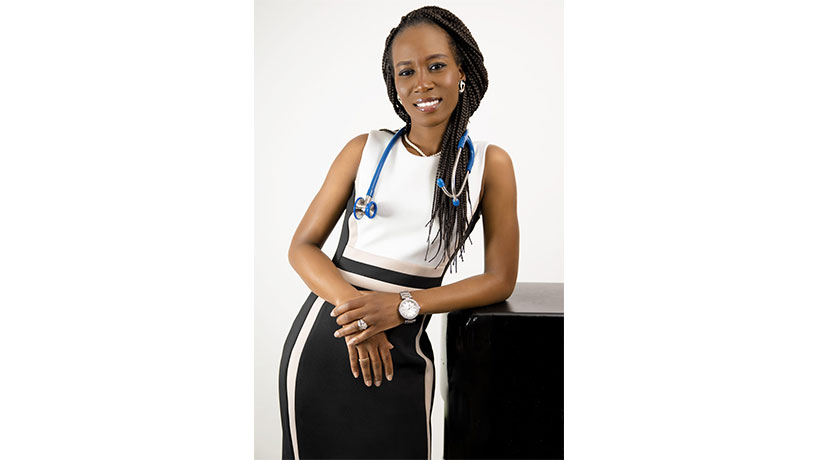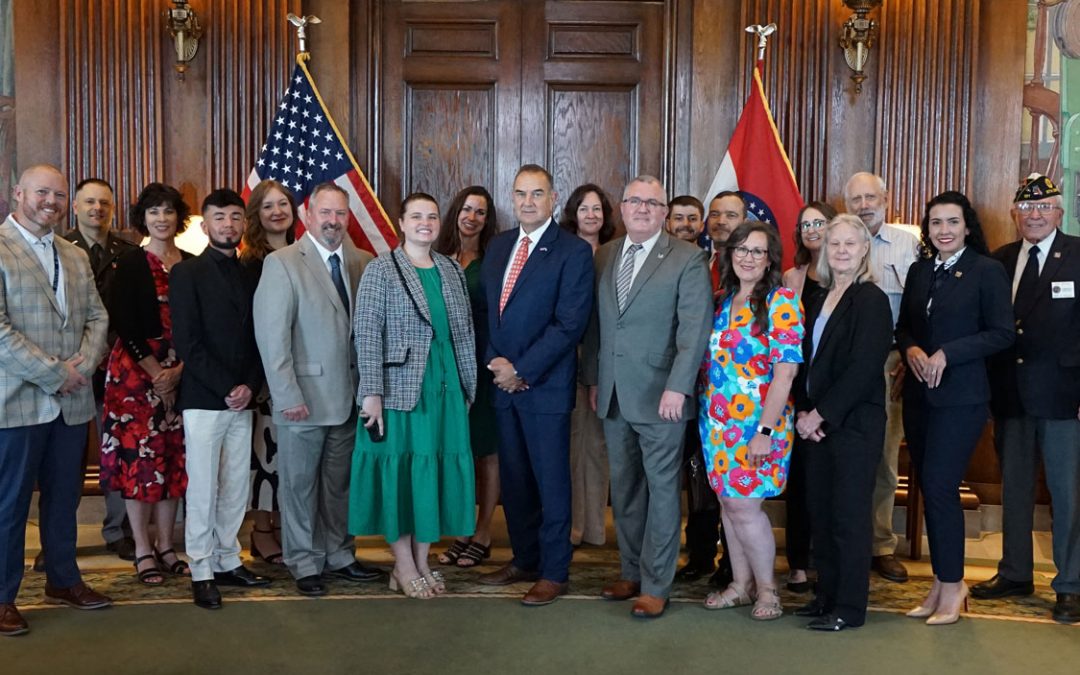
Lola Ekwere works as a psychiatric mental health nurse practitioner and is studying mental health stigmas in the PhD Nursing Program at UMSL. (Photo courtesy of Lola Ekwere)
Before starting in the PhD Nursing Program at the University of Missouri–St. Louis last fall, Lola Ekwere worked as a nurse for over a decade, developing a holistic approach to care that prioritizes mental health.
She’s worked as a bedside nurse in various settings, including a medical surgical floor, intensive care unit and cardiac intensive care unit, as well as in a state psychiatric hospital. As she began working with vulnerable populations, including patients with psychiatric disorders, immigrants and members of marginalized communities, she was inspired to help improve psychiatric mental health treatments in those populations.
Now based in Texas after living in New Jersey for many years, Ekwere currently works as a psychiatric mental health nurse practitioner taking care of children, adolescents and adults with psychiatric disorders including depression, anxiety, OCD, bipolar disorder and schizophrenia. She primarily works in the outpatient setting, seeing patients – often virtually – and evaluating them based on their history, then diagnosing them and coming up with a treatment plan, which may include medication management or therapy.
After graduating with her BSN from William Paterson University in 2009, Ekwere went on to earn a master’s degree in nursing from Rutgers University in 2013. She worked for several years as a family nurse practitioner, treating patients with issues such as hypertension and diabetes, before deciding to go back to school again in 2019 to pursue additional training and certification in psychiatric mental health care from Maryville University.
“While I was working in primary care, I realized that a lot of my patients needed mental health care,” she said. “As many people are aware, it takes a long time to get any kind of appointment with a psychiatrist or a therapist – oftentimes, it can range from three to six months. I wanted to put myself in a position whereby if you came in for high blood pressure or asthma and you were also struggling with a mental health condition, I could also treat you for the mental health condition, almost like a one-stop shop.”
After completing her post-master’s training in 2020, Ekwere decided to pursue a terminal degree in nursing and began looking into PhD programs. While completing a certificate program in community-based participatory research methods at the University of Missouri–Columbia, she took a qualitative research methods course taught by Julie Bertram, an assistant professor in UMSL’s College of Nursing. Instantly, she knew UMSL would be a good match.
“The passion that she brought into the class was something that drew me to her personally,” Ekwere recalls. “She taught the class very passionately and she was very supportive. She went above and beyond, creating time outside of the classroom to provide the support needed. Dr. Bertram essentially exemplified what I’m looking for in a PhD program – the support and the passion of faculty for what they teach.”
With a fully online curriculum, UMSL’s PhD program was also a great fit for the Texas resident. She started the program last fall knowing that she wanted to focus her research on mental health stigmas, which prevent many people with psychiatric disorders from seeking help. Her work will examine both public stigma as well as self-stigma.
“Statistics show that one in five people struggle with mental health,” she said. “That’s a family member, that’s a friend, that’s a neighbor, right? It’s more common than we all know. I wanted to focus on mental health stigmas because in the community that I come from, it is a big deal that sometimes goes unaddressed or talked about and misunderstood. Oftentimes, it is frowned upon and can lead to people distancing themselves from you when they realize you struggle with any kind of mental health issue. I wanted to look into mental health stigma in vulnerable or marginalized populations, primarily based on my own cultural and personal experience.”
With that in mind, Ekwere, who is originally from Nigeria, has recently narrowed the scope of the project to focus specifically on mental health stigmas among African and Caribbean people living in the United States.
“There’s a paucity of research in that area,” she explained. “When you look at the research, you see studies involving Blacks in general, which is a big umbrella. There are different ethnic groups with different cultural backgrounds and so on. Based on my own cultural experience as a Nigerian American, I wanted to look at Caribbeans and Africans living in the United States.”
Although Ekwere is just getting started on her research, she hopes it will eventually help to decrease mental health stigmas and improve professional help-seeking practices within her chosen population.
“The goal is to not only decrease stigmas, but also make it accessible to be able to see a licensed therapist, psychiatrist, psychologist or psychiatric nurse practitioner,” she said. “The end goal is improving access to care as we decrease mental health stigmas. If I’m feeling depressed, sad or anxious, do I even know where to go to get help?
“Individuals with mental illness may feel a sense of shame discussing or getting help for mental illness due to the stigma associated with it. For example, at a workplace, it’s easy for anyone to take time off from work and gain sympathy because they have flu symptoms or whatever physical ailment; however, people with mental disorders may not feel comfortable discussing their illness due to fear of retaliation such as losing their jobs, friendships or other relationships. It is important to note that mental health is equally important as physical health and should be equally prioritized.”
During her first year in the program, Ekwere worked alongside her mentor, Bertram, as a research assistant on a project that examined the ability of the Wrap Around Wellness program to meet the mental health needs of children in foster care in Missouri. Ekwere assisted with qualitative and quantitative data analysis, helped develop a manuscript and assisted in writing the discussion section of the paper.
And while the two ultimately have different research interests, Bertram has enjoyed working with Ekwere, and sees a bright future ahead for her.
“She’s a quick learner, she’s adaptable, she’s flexible, she’s friendly, she’s easy to work with, and you can tell that she’s happy to be going for her PhD,” Bertram said. “One of the great things about UMSL is we take students and help them develop the interests that they’re going to be passionate about and stick with, and it doesn’t have to be our interest. We find that when students develop their own area of interest, they will be more likely to stick with their research over time.
“Lola’s interest is stigma among African and Caribbean adults living in the United States and seeking out mental health care – that’s her passion. She does psych mental health work in her day job, she’s in the trenches doing the work, and then she’s developing a line of inquiry that is matching with her passion.”














